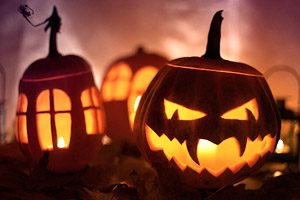 What did you dress up for Halloween this year? Did you go for a scary, witty or charming costume? Whatever ensemble you chose, Essay Writer hope you had fun yet safe celebration during that busy “spooky” night.
What did you dress up for Halloween this year? Did you go for a scary, witty or charming costume? Whatever ensemble you chose, Essay Writer hope you had fun yet safe celebration during that busy “spooky” night.
Halloween Background
Did you know that there is more to Halloween than costumes, pumpkins and trick-or-treating? Its history is quite interesting. There is actually a dispute as to whether it originated from pagan or Christian practices. Some would say that it originated from pagan festivals where people believed spirits of the dead would come alive. They thought that it was important to dress up in costumes so spirits that walked the earth wouldn’t harm them.
On the other hand, it is said that the Christian dogma influenced modern Halloween customs. It is the night before holy days All Saints’ Day on 1st November and All Souls’ Day on 2nd November. It gave 31st October the full name of All Hallow’s Eve. The three days are collectively called Allhallowtide, a time to honor saints and pray for the dead to reach heaven.
Those wondering how the word Halloween was coined, it came from a Scottish term for All Hallow’s Eve. The word eve in Scottish is even and pronounced as -een, thus Halloween came to be. Some would call this celebration Halloween Bob Apply Night or Duck Apple Night. It came from a traditional game apple bobbing or apple ducking where players catch apples with their teeth. Some believe that this game is a reminder of when women accused of witchcraft were ducked into a river. Now, this occasion is mostly associated with horror movies, pumpkin lanterns, chocolate and candies, black cats, and other scary-fun stuff.
Halloween in the UK
Halloween traditions greatly vary among countries observing it. It was not fully embraced in Britain during the spread of Martin Luther’s Protestant Reformation. Since followers did not believe in saints, they didn’t celebrate the eve of All Saints Day. However, like rest of the world, Britons have adopted the American treat-or-treating and wearing of costumes. This celebration is for entertainment, rather than religious purposes.
In some rural areas, English children used to make punkies from beetroots, which was Britain’s version of Jack o’ lanterns. They would carry them and sing the Punkie Night Song and knocked at people’s homes to ask for money. People would also place turnip lanterns on their gateposts to drive away spirits.
Halloween is not a bank holiday in the UK so this means offices, shops, schools, and other organisations remain open. Public transportations run on their usual schedules as well. It will get busier at night as kids go treat-or-treating and adults go to costume parties.
 English
English 中文
中文
